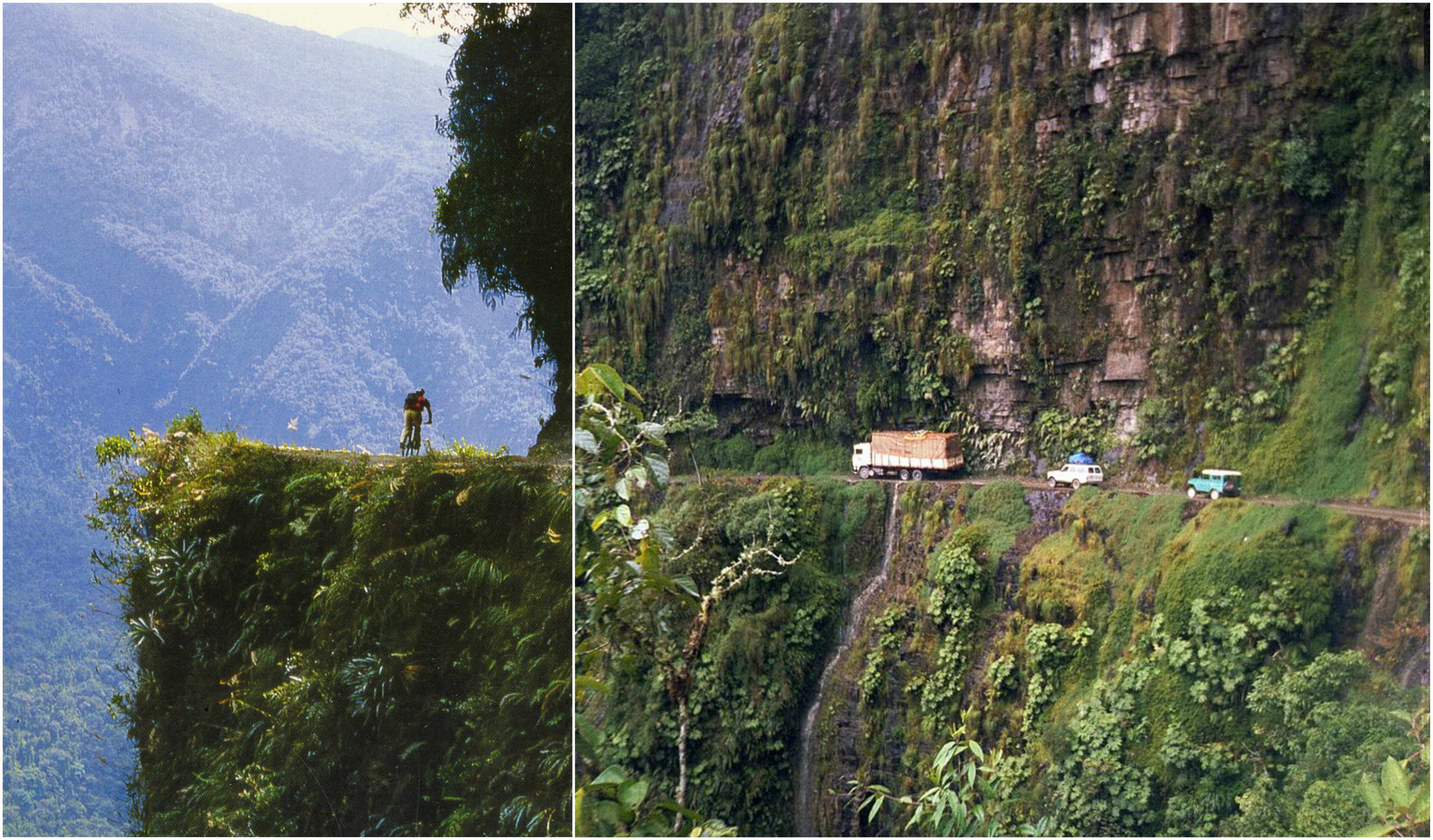Dead Road in Bolivia – The world’s most dangerous road

Famously known as the ‘Death Road.’ The North Yungas Road which leads from La Paz to Coroico in the north of the Yungas region of Bolivia.
It is 35 miles (56 kilometers) long, and it has various names – the Coroico Road, Camino a Los Yungas or Road of fate. In 1995 it was listed as the “world’s most dangerous road” by the Inter-American Development Bank. According to a 2006 report, it has been estimated that there are 200 to 300 travelers per year killed along the road. The road is full of crosses marking the spots where vehicles have fallen off.

As this is one of the very few routes that connects the Yungas region to the capital city. Just past the exit of La Paz, the road climbs to around 15,260 feet (4,650 meters) until it reaches the La Cumbre Pass where it starts to descend to 3,900 feet (1,200 meters) in the town of Coroico. It transitions very quickly from chilly Altiplano terrain to rainforest.
It is also very windy along the road as it cuts through cliffs and very steep hillsides.


It is a single-lane road the width of one vehicle, about 10 feet wide (3.2 meters), and has very few guard rails to safeguard against drops of up to 2,000 feet (600 meters).
In the rainy season which lasts from November to March, the road is obscured by rain and fog, while there is a lot of water runoff which can turn it into a muddy track. In summer, on the other hand, there are a lot of rockfalls, and the visibility is limited by dust.
The road has exceptional driving rules. Unlike the rest of Bolivia, here the vehicles are required to drive on the left side of the road so that they can have better visibility of the outside wheel of their vehicle and to make passing safer. Another rule is that the downhill vehicle never has the right of way. It always has to move on the outer edge of the road, and it always has to stop for the for the passing car.


The road was built during the Chaco War in the 1930s, by Paraguayan prisoners. Over a period of 20 years which ended in 2006, the Yungas Road has been modernized with enlarged carriageway from one to two lanes, with an asphalt pavement constructed, and a new section added between Chusquipata and Yolosa, bypassing via the north one of the most dangerous sections of the old “Death Road.”
These days, the original North “Death Road” is very rarely used by traffic even though there are many travelers that want to bike it for that feeling of adventure.


However, the Yungas Road is still a dangerous one. There have been at least 18 cyclists who lost their lives on the road since 1998. And yet, it is maybe the favorite downhill biking destination for everyone who loves mountain biking. It is of little surprise considering there are 40 miles (64 kilometers) of continuous downhill interrupted by only one short uphill section.
The road has opened business for many locals in La Paz and Coroico who provide information, equipment, transport, and guides for the route.
If you have any comments then please drop us a message on our Outdoor Revival Facebook page
If you have a good story to tell or blog let us know about it on our FB page, we’re also happy for article or review submissions, we’d love to hear from you.
We live in a beautiful world, get out there and enjoy it.
Outdoor Revival – Reconnecting us all with the Outdoors
